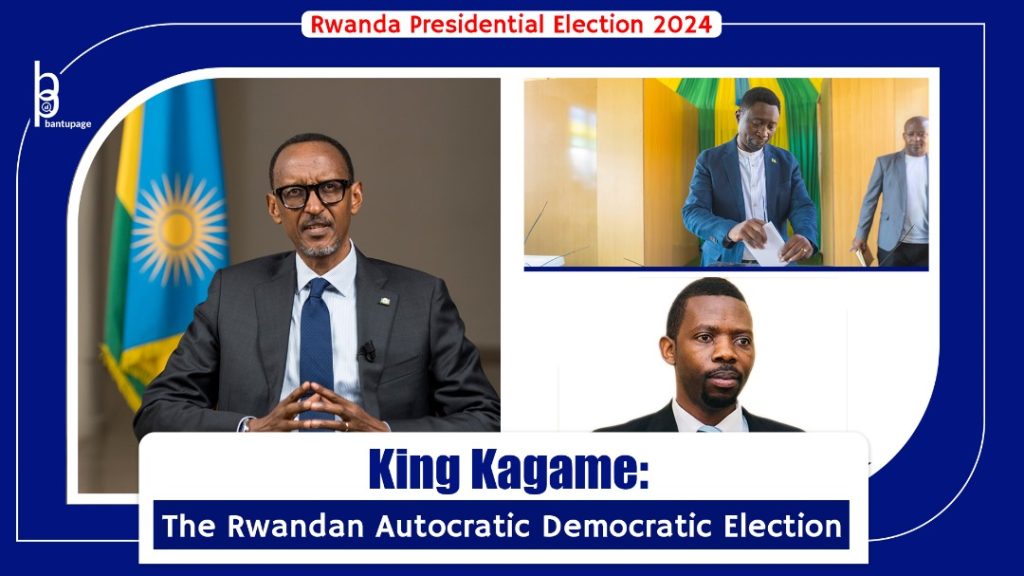
The Rwandan Democracy by Paul Kagame
Thirty years ago, Rwanda suffered a devasting genocide that shook the world. The US and the West did nothing to stop it because Rwanda had no resources it could exploit. The country was literally bankrupt until a man called Paul Kagame interfered. A former commander of the Rwandan Patriotic Front (RPF), a rebel armed force that invaded Rwanda in 1990. He, once again, led the Rwandan Patriot Front (RPF) to defeat Hutu extremist forces and end the 1994 Rwandan genocide. The year was 2000, and the National Assembly elected forty-two-year-old Kagame as the president of Rwanda.
Kagame’s Democracy:
The president is elected through a universal and secret suffrage for a 5-year term. The election occurs in a single round, and the candidate who receives a relative majority becomes president. However, a second round is required if two candidates receive the same number of votes. The president must be a Rwandan citizen, born in the country, at least 35 years old, and not a citizen of any other country. The President of the Republic and the Chamber of Deputies should represent different parties.
In 2015, a referendum amended the constitution, allowing Paul Kagame to run for a third seven-year term, followed by two additional five-year terms. The National Electoral Commission oversees elections. Any eligible Rwandan citizen who has reached the age of 18 has the right to vote. The voting hours are 7:00 a.m. to 3:00 p.m. The preliminary results are announced within five days, whilst the final results are announced within seven days of the preliminary results. The president-elect takes a public oath before Supreme Court justices and assumes office within 30 days.
The president is the head of state and commander-in-chief of the armed forces.
Rwandan courts rejected real opposition candidates like Bernard Ntaganda and Victoire Ingabire. They had previous convictions that effectively barred them from contesting. As Kagame put it himself, “Democracy is often misunderstood or interpreted differently by people, but we have our own understanding based on the unique reality of Rwandans and what needs to change in our lives,” he told an audience of thousands of supporters.
 Bernard Ntaganda
Bernard Ntaganda
Bernard Ntaganda, president of the Ideal Social Party (PS-Imberakuri) party, was sentenced to 4 years imprisonment after being found guilty of breaching state security of “divisionism” for holding public speeches criticising government policies and attempting to plan an “unauthorised” demonstration. He was arrested just before candidates could register for presidential elections in 2010.
 Victoire Ingabire
Victoire Ingabire
Victoire Ingabire’s conviction was even more profound. A High Court in Kigali found her guilty of conspiracy to undermine the established government and denying the genocide and sentenced her to eight years in prison. The charges were so blatantly politically motivated that Amnesty International and other human rights groups condemned them.
After 24 years in power, Kagame is poised to maintain his dominance without any significant opposition, having effectively suppressed and muzzled opposition in an almost totalitarian manner. He faces Frank Habineza, the opposition Democratic Green Party of Rwanda, and Philippe Mpayimana, who is running as an independent candidate. Habineza won less than 2% in the last presidential election. A feat he is likely to repeat in 2024. Kagame won all previous elections in 2003, 2010, and 2017 with over 90% of the vote. The fear he has inflicted on the masses and opposition has certified Kagame as the elected king of Rwanda.
 Frank Habineza
Frank Habineza
 Philippe Mpayimana
Philippe Mpayimana
Achievements:
- Cleanliness: He turned a war-ravaged country into the cleanest in Africa.
- Corruption: Out of 180 countries in the corruption index, Rwanda ranks 49, surpassing many developed countries.
- Economic Transformation: With 1.2 million new jobs created, Rwanda has so far had robust, inclusive economic growth. There are also indications of economic transition, including decreased reliance on agriculture and increased non-farm employment.
- Women and Politics: Rwanda has more women in parliament than any other country, holding over 60%. The female majority has ensured that laws aimed at raising the status of women are at the forefront of political discourse.
- Education: With almost 70% of the population under 24, the Rwandan government has prioritised education. The government spends, on average, 15% of its budget on education between 2013 and 2023 and has made primary and secondary school compulsory for both sexes. With 98.8% of children enrolled in primary school, Rwanda has the highest net enrollment rate in Sub-Saharan Africa, demonstrating its considerable performance in the education sector.
- Healthcare: Over 90% of the population is enrolled in Rwanda’s national health programme. Due to greater access to health services, there has been a decline in deaths from diseases like malaria, which saw an over 85% drop. Life expectancy in Rwanda is 70 years, whereas in Nigeria, it is 56 years.
- Police: Its police force ranked second best in Africa after Botswana. The Rwandan police exhibited excellent transparency and were incredibly equipped and trained.
- Infrastructure: Rwanda is connected by good-quality tarmac road infrastructure to all districts in the country. There are lights installed on the streets to increase security and decorate the country. It has speed cameras throughout Kigali city and other major urban conglomerates. Solid structures are spiralling throughout the country, and a brand new airport is in the making to become East Africa’s largest. Schools, hospitals, government buildings, and other facilities are fully equipped to meet Rwandans’ needs.
- Airline: It has its own national airline, RwandAir, which has become an African brand. It covers cities like London, Brussels, Qatar, and many other African cities.
- Security: Rwanda was the safest country in Africa in 2024. With a safety index score of about 73.2, it is the only country in Africa with high levels of safety (over 60 index points) and the country with the fewest crime incidences.
By Ikechukwu ORJI





